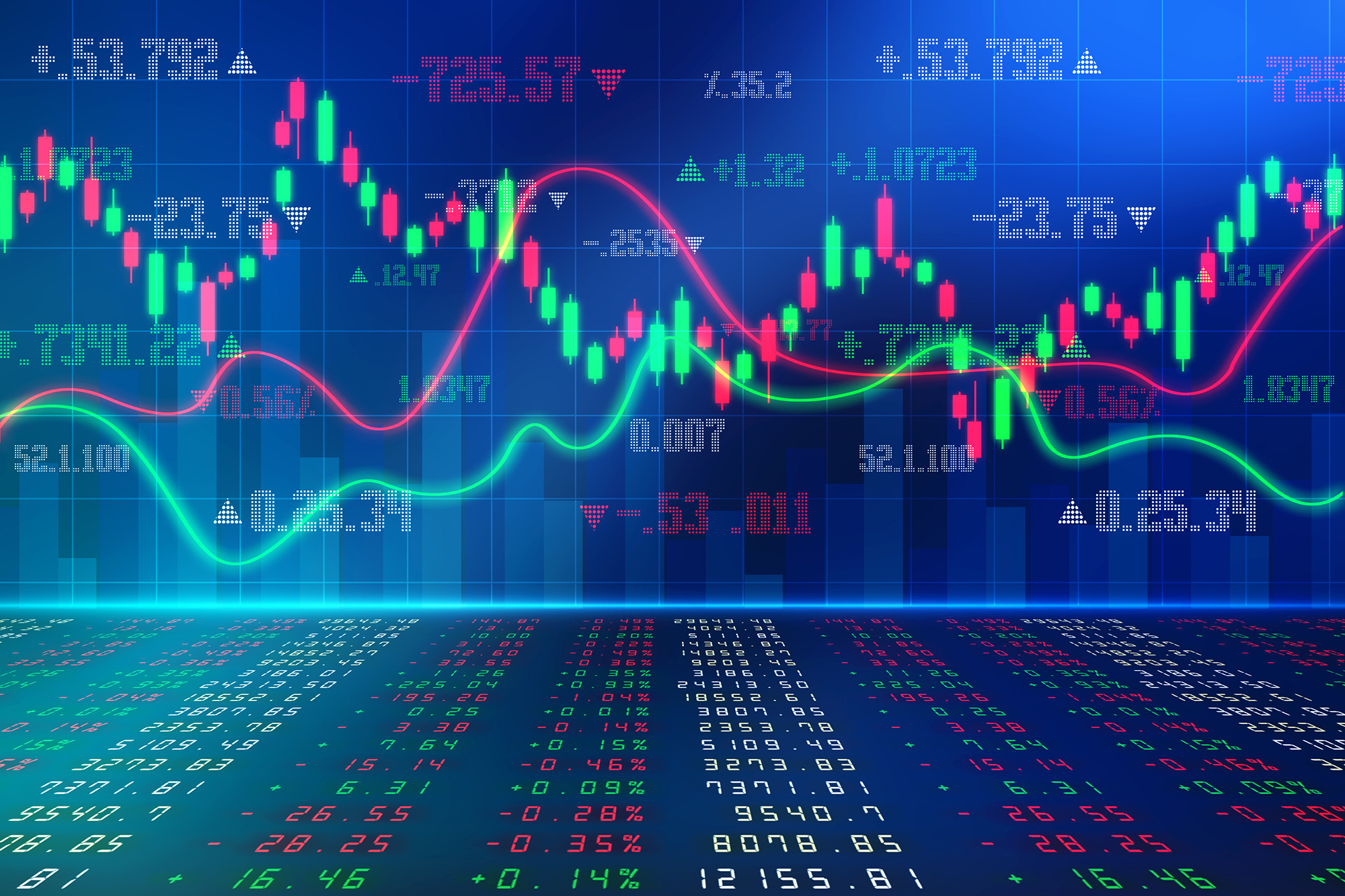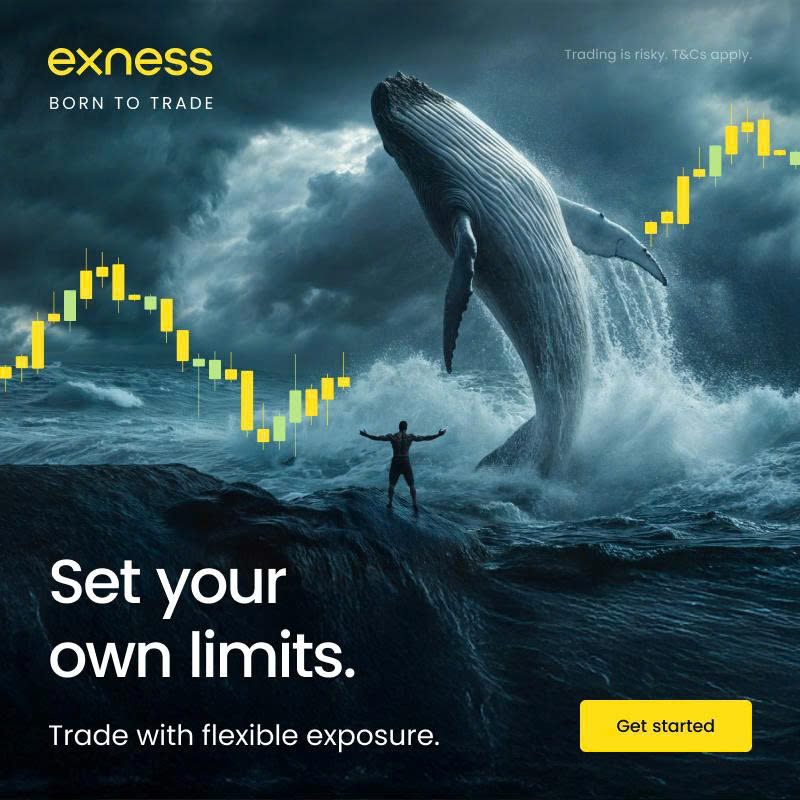
8 minute read
Is Forex Trading Banned in Dubai? Here’s the Truth You Need to Know
from Exness
by Exness Blog
If you’re wondering, “Is forex trading banned in Dubai?” let’s clear the air right away: No, forex trading is not banned in Dubai. In fact, it’s completely legal and thriving in the United Arab Emirates (UAE), including Dubai, as long as you trade through regulated brokers. Dubai’s status as a global financial hub, paired with its tax-free environment and robust regulations, makes it a hotspot for forex traders worldwide. But there’s more to the story—regulations, risks, and tips you need to know to trade safely and effectively. So, grab a coffee, and let’s dive into everything you need to understand about forex trading in Dubai.
Top 4 Best Forex Brokers in Dubai
1️⃣ Exness: Open An Account or Visit Brokers 🏆
2️⃣ XM: Open An Account or Visit Brokers 💥
3️⃣ JustMarkets: Open An Account or Visit Brokers ✅
4️⃣ Quotex: Open An Account or Visit Brokers 🌐
Why Dubai Is a Forex Trading Paradise
Dubai’s appeal as a forex trading destination is no accident. The city’s strategic location, cutting-edge financial infrastructure, and progressive economic policies create a perfect storm for traders. Whether you’re a newbie dipping your toes into the market or a seasoned pro, Dubai offers unique advantages:
Tax-Free Profits: The UAE doesn’t impose personal income tax or capital gains tax on forex trading profits. That means you keep every dirham you earn—no taxman knocking at your door
World-Class Regulation: Forex trading in Dubai is tightly regulated by bodies like the Dubai Financial Services Authority (DFSA), Securities and Commodities Authority (SCA), and the Central Bank of the UAE (CBUAE). These organizations ensure transparency and protect traders from fraud.
Global Market Access: With its time zone bridging Asia, Europe, and the Americas, Dubai gives traders access to the $7 trillion daily forex market around the clock.
Sharia-Compliant Options: For Muslim traders, many brokers offer Islamic accounts that avoid interest-based fees, aligning with Sharia principles.
But before you fire up MetaTrader and start trading EUR/USD, let’s unpack the regulatory landscape and what it means for you.
The Regulatory Framework: Who’s Watching the Market?
Forex trading in Dubai operates under a well-oiled regulatory machine designed to protect traders and maintain market integrity. Here’s a quick breakdown of the key players:
Securities and Commodities Authority (SCA): The SCA oversees financial markets across the UAE, ensuring brokers follow strict guidelines, maintain fair practices, and protect investors from scams. If you’re trading outside the Dubai International Financial Centre (DIFC), your broker needs an SCA license.
Dubai Financial Services Authority (DFSA): If your broker operates within the DIFC, a special economic zone in Dubai, they’re regulated by the DFSA. This body enforces international standards, including anti-money laundering (AML) and know-your-customer (KYC) protocols.
Central Bank of the UAE (CBUAE): The CBUAE oversees monetary policy and regulates banks and financial institutions, including those offering forex services. They ensure stability in the financial system.
Abu Dhabi Global Market (ADGM): Another financial free zone, the ADGM is regulated by the Financial Services Regulatory Authority (FSRA) and offers additional opportunities for forex trading.
These regulators make one thing clear: forex trading is legal, but only if you use licensed brokers. Trading with unregulated or offshore brokers can land you in hot water, with risks ranging from financial losses to legal consequences.
Is There Any Truth to the Ban Rumors?
You might have heard whispers about forex trading being banned in Dubai. Let’s debunk that myth. The confusion often stems from the UAE’s strict regulations against unlicensed brokers. The government cracks down hard on fraudulent platforms promising “guaranteed profits” or operating without proper authorization. For example, the SCA regularly issues warnings about unlicensed brokers, and the DFSA enforces compliance within the DIFC.
So, while forex trading itself is 100% legal, trading with an unregulated broker is not. This distinction is critical. Always verify your broker’s license with the SCA, DFSA, or a reputable international regulator like the FCA (UK) or CySEC (Cyprus) to stay on the right side of the law.

✅ Trade with Exness now: Open An Account or Visit Brokers 👈
How to Start Forex Trading in Dubai: A Step-by-Step Guide
Ready to jump into forex trading in Dubai? Here’s a straightforward guide to get you started:
Educate Yourself: Before risking a single dirham, learn the basics—pips, spreads, leverage, and margin. Platforms like MetaTrader 4 or 5 offer demo accounts where you can practice without losing real money.
Choose a Regulated Broker: Pick a broker licensed by the SCA, DFSA, or a trusted international regulator. Check their trading platform, fee structure, leverage options, and customer support. Popular choices include Exness, IC Markets, and Pepperstone, known for low spreads and fast execution.
Open a Trading Account: Complete the broker’s KYC process by submitting proof of identity (passport) and residence (utility bill or bank statement). Fund your account using secure methods like bank transfers or digital wallets like Hubpay.
Develop a Trading Plan: Define your goals, risk tolerance, and strategy (e.g., scalping, day trading, or swing trading). Use tools like stop-loss orders to manage risk and avoid over-leveraging.
Stay Informed: Follow global economic news and regulatory updates from the SCA and DFSA. Events like interest rate changes or geopolitical shifts can impact currency markets.
Pro tip: If you’re a Muslim trader, opt for an Islamic account to ensure Sharia compliance. These accounts avoid swap fees (interest) and use commission-based structures instead.
Risks and Challenges You Should Know
Forex trading isn’t a get-rich-quick scheme. It’s a high-risk, high-reward market, and Dubai’s regulations aim to minimize those risks. Here are some challenges to watch out for:
Market Volatility: Forex markets move fast, and sudden price swings can wipe out your account if you’re not careful. Always use stop-loss orders and avoid risking more than 1-2% of your capital on a single trade.
Unregulated Brokers: Scams promising “guaranteed profits” are common. Stick to licensed brokers to protect your funds and ensure legal recourse if something goes wrong.
Leverage Limits: The SCA and DFSA cap leverage at 1:50 for major currency pairs and 1:30 for others to reduce risk. While some offshore brokers offer higher leverage (e.g., 1:500), they may not be regulated in the UAE, increasing your exposure to scams.
Currency Conversion Fees: If you’re trading in non-AED currencies, watch out for conversion costs that can eat into your profits.
Why Choose a Regulated Broker?
Trading with a regulated broker isn’t just about staying legal—it’s about protecting your money. Licensed brokers are audited regularly, segregate client funds, and follow strict AML and KYC rules. For example, DFSA-regulated brokers like Forex.com and IG Markets offer robust platforms and educational resources, making them ideal for both beginners and pros.
On the flip side, unregulated brokers might tempt you with high leverage or low fees, but they often lack transparency. If they go bust or disappear, your funds could vanish too. Always check a broker’s license on the SCA or DFSA website before depositing money.
The Future of Forex Trading in Dubai
Dubai’s forex market is poised for growth, driven by technological advancements and increasing regulatory oversight. Events like the Forex Expo Dubai 2025 (May 14-15) showcase the latest trends, from AI-powered trading platforms to blockchain integration. These innovations promise faster, more transparent trading, but they also mean you need to stay updated on market developments.
The UAE’s commitment to becoming a global financial hub ensures forex trading will remain a key player. With no signs of a ban and a supportive regulatory framework, Dubai is set to attract more traders and brokers in the coming years.
Practical Tips for Success
To thrive as a forex trader in Dubai, keep these tips in mind:
Start Small: Use a demo account to test strategies before risking real money.
Network Locally: Join trading communities or attend events like the Forex Traders Summit to learn from experienced traders.
Stay Disciplined: Stick to your trading plan and avoid emotional decisions or overtrading.
Monitor Regulations: Check SCA and DFSA updates regularly to stay compliant.
Leverage Technology: Use charting software, economic calendars, and mobile apps to stay ahead of the market.
Final Thoughts: Is Forex Trading Right for You?
Forex trading in Dubai is not only legal but also a fantastic opportunity for those willing to put in the work. The city’s tax-free environment, strong regulations, and access to global markets make it a trader’s dream. However, success requires education, discipline, and choosing the right broker. By sticking to regulated platforms and managing risks, you can navigate the forex market with confidence.
✅ Trade with Exness now: Open An Account or Visit Brokers 👈
Read more:










